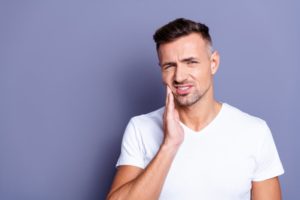
Just like medical emergencies, dental ones are as important and should be treated with haste. Failure to address the emergencies such as trauma and knocked out teeth can lead to infection or worse still loss of teeth. Regardless of the severity of the emergency whether mild or severe, you should visit a dental clinic with emergency services.
What Is a Dental Emergency?
A dental emergency is an injury that affects the teeth, gums, soft tissues, and dental restorations. The injuries can be mild or severe, but if they threaten the health and safety of the teeth, then they need to be addressed with urgency.
What Is Classified as Dental Emergency?
Let’s be clear, not all injuries to the teeth are classified as dental emergencies, hence they don’t require urgent medical attention. However, if are in doubt and don’t know whether it’s an emergency, visit our dental clinic for an assessment. In general, though, here are some of the dental emergencies:
- Avulsed or knocked teeth occur when the teeth are pulled or loosened from the root of the gum as a result of a direct impact on the teeth.
- Cracked and broken teeth can develop as a result of decay, accidents, or falls
- Toothaches or pain is a symptom of decay, infected gums, damaged fillings, and abscessed teeth. Although most can be managed at home, if the pain is severe then seek urgent care.
- Soft tissue lacerations or injuries occur in the gums, cheeks, upper part of the mouth and tongues. These lacerations can cause infections and pain if left untreated.
- Severe and sudden tooth sensitivity can be an indication of decay or tooth fracture and need urgent dental treatment
- Swollen jaws occur as a result of common cold, trauma, swollen glands, injury, and bacterial infections. Severe jaw swelling can develop into fever, headaches, and trouble breathing.
- Oral infections due to bacteria or decay
How Can You Deal with the Dental Emergency?
When an emergency occurs, call your dentist immediately. But, as you wait to get assistance, here are few tips to manage them:
- Keep the teeth moist if they are knocked out. Plus, try to place the tooth back to the socket, and don’t pull it. Only the dentist can decide if the tooth can be saved or not.
- Use warm salt water to keep bacteria away. Also, a cold compress can prevent gum swelling
- Apply a gauze pad to stop bleeding. You can use medications but stay away from aspirin because it makes bleeding worse.
What Happens at the Dental Office?
Our goal is to ease pain, keep you comfortable, and save your teeth if necessary. That’s why we have modern technology and qualified staff equipped to handle different dental emergencies. When you arrive, Dr. R. Boyd Gilleland will assess your dental situation and also gather information on your dental and medical history. He will perform an assessment and examination using digital imaging and discuss which dental treatment is needed. We will explain the treatment procedure and the risk involved if any.
Are Dental Emergencies Covered by Insurance?
Some of the dental emergencies are covered by insurance and others aren’t. It is crucial to contact your dental insurance provider to find out which dental treatments fall under the emergency category.
How Can You Prevent Dental Emergencies?
Most dental emergencies occur without warning and sometimes can be very severe. However, there are ways you can reduce your risk and even prevent them and here are some of them:
- Have good oral hygiene for you and your family to be able to prevent plaques and bacteria growth. Remember, cavities can weaken your teeth and cause them to crack or worse still come out.
- Come for your regular dental checkups and assessment. We perform professional cleaning as well as give fluoride treatment to strengthen the teeth.
- Never play high-impact sport without wearing a mouthguard. These dental devices will protect your teeth from impact as well as bruxism.
- Don’t open bottles or bite hard objects to avoid weakening your teeth
- Pay attention to what is happening in your mouth and teeth. If you notice any pain or sensitivity, come for treatment.
Don’t Take Chances
Dental emergencies can occur at any time with mild or severe injuries. If you are in doubt of what to do when the emergency occurs, don’t take chances, but come to R. Boyd Gilleland DDS for assistance.
